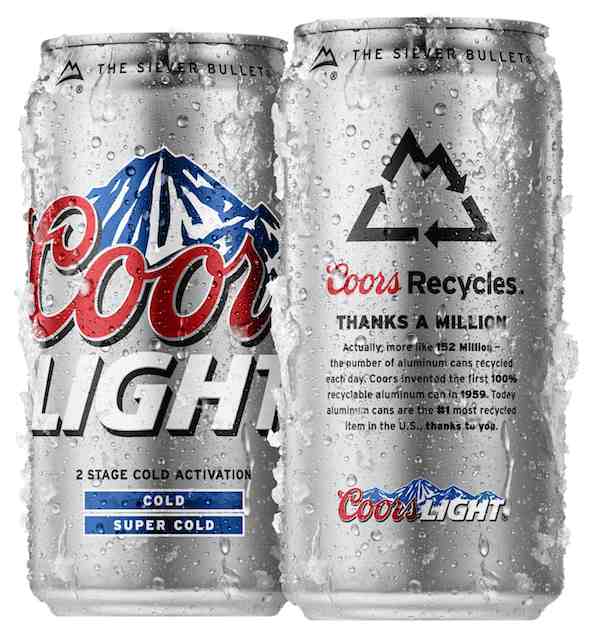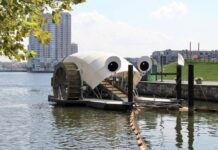 In natural systems like rainforests, one creature’s waste is another’s food, and virtually nothing is lost forever. Contrast this highly efficient natural system with human industry, whose smokestacks belch pollution and whose chemical processes dump solvents and other wastes into streams that poison, rather than feed.
In natural systems like rainforests, one creature’s waste is another’s food, and virtually nothing is lost forever. Contrast this highly efficient natural system with human industry, whose smokestacks belch pollution and whose chemical processes dump solvents and other wastes into streams that poison, rather than feed.
Now, an unlikely pairing of radical environmentalists and industrial corporations is trying to prove that industry can mimic the rainforests and increase profits at the same time.
As part of a broad agreement with rainforest preservationists, two corporate subsidiaries of the Mitsubishi empire have pledged to translate a concept called “industrial ecology” into practice.
Among other steps, Mitsubishi Electric of America and Mitsubishi Motor Sales of America will begin eliminating nonrenewable and hazardous materials from their production processes, in cooperation with the San Francisco-based Rainforest Action Network.
Trenka, who has been working with Coors Brewing Co. to implement waste-free industrial processes, said these corporations are following what boils down to a simple ecological method.
“Take a look at what goes in the front gate and then what goes out the back. Is there anything coming out the back that is of value to somebody else? Industrial ecology is about closing that natural loop,” he said.
In attempting to close this loop, Coors has developed products such as biodegradable plastics that have become more profitable than its beer, according to those working with the company.
As part of the new pact negotiated with RAN, Mitsubishi Motor Sales will pay into a fund earmarked to preserve enough rainforest to offset the carbon in tailpipe emissions from its Montero LS cars and will encourage new owners to do the same. Since rainforests absorb carbon emissions that would otherwise be released into the atmosphere, preserving plots of rare rainforest can help slow the global warming trend scientists have raised alarms about.
Rainforest activists are spreading the word about The Natural Step, a set of principles embracing the notion that materials should not be produced at a rate faster than they can be broken down and integrated into nature’s existing cycles. These concepts resonated with Tachi Kiuchi, the former CEO of Mitsubishi Electric of America, who negotiated the agreement after paying a visit to the Malaysian rainforest.
“I learned that rainforests are more efficient, and more creative, than any business in the world,” said Kiuchi, who is now managing director of the Japanese parent company, Mitsubishi Electric Corp.
In one of the first practical steps toward acting more like a rainforest, the staffs of the Mitsubishi subsidiaries will receive training in The Natural Step principles. In addition, the companies will set up “ecological accounting systems,” which track the volume of resources or wastes per unit of sales. Eco-accounting is proving an effective tool for companies to cut costs and boost environmental performance, by finding ways to provide more services using less energy, materials, land or other resources, according to advocates.
The agreement ends a 5-year boycott by RAN against the electronics and motors arms of the Mitsubishi “keiretsu,” or family of corporations. But the rainforest network will continue the boycott of other Mitsubishi companies, said spokesman J.C. Callendar.
Rainforest defenders have long criticized Mitsubishi for its connections to allegedly destructive logging operations in Borneo and its large imports of old-growth timber that comes from rainforests. “We wanted Mitsubishi Corp. to hear the message from its corporate siblings instead of us,” Callendar said, explaining the separate peace negotiated with the two subsidiaries. “That approach would carry a little more weight than having them get the information from their adversaries.”
While keeping up the pressure on the larger Mitsubishi Corp.’s forestry practices, the environmental group will work with the American subsidiaries to phase out their own old-growth timber use this spring and use of all wood products of any kind by 2002.
Environmental advocates say companies such as Mitsubishi, which Fortune magazine has described as the world’s largest industrial and financial conglomerate, are dispelling the image of industrial ecology as the sole preserve of tree-hugging entrepreneurs in California and a few other spots.
Ed Cohen-Rosenthal, an associate professor at Cornell University’s School of Industrial and Labor Relations in Ithaca, N.Y., pointed out that so-called eco-industrial parks are being developed in such places as Baltimore, Md., Trenton, N.J. and Cape Charles, N.Y.
“Our major products are waste, not work,” said Cohen-Rosenthal, referring to the vast amounts of waste generated by industry compared with the amount of products and jobs. These industrial parks, he stated, “try to link companies to communities by using resources more efficiently to develop good jobs and improve the environment.”
Perhaps one of the most surprising converts to the industrial ecology cause is a company that has long been an object of the wrath of liberals due to its support of conservative causes.
 Coors Brewing Co., however, was the first brewer to switch from glass containers to aluminum cans and then, by 1960, was offering to buy them back at a penny each. When aluminum suppliers refused to recycle, Coors bought and developed European technology that allowed the company to manufacture cans made of 90 percent recycled materials.
Coors Brewing Co., however, was the first brewer to switch from glass containers to aluminum cans and then, by 1960, was offering to buy them back at a penny each. When aluminum suppliers refused to recycle, Coors bought and developed European technology that allowed the company to manufacture cans made of 90 percent recycled materials.
William Coors, an early industrial ecologist, argued that “all pollution and all waste is lost profit” and encouraged his employees to find new uses for the technologies and waste products from the brewery. Today, many of those innovations have been spun off into a separate company, ACX Technologies, whose revenues between 1992 and today have grown from the equivalent of 25 to 50 percent of revenues represented by beer sales, according to Bill Shireman, president of Sacramento-based Global Futures.
The new Coors products include aluminum cans with the highest recycled content in the industry, photovoltaic cells that convert sunlight to electricity and organic plastics from corn that biodegrade when their useful life is over.
Now, after years of struggle with the rainforest activists, the Mitsubishi subsidiaries are hoping to turn the ecological principles to their industrial advantage. “I learned that saving the environment is an opportunity to pursue business opportunities that use creativity and technology to substitute for trees, for resources of any kind,” said Kiuchi, the former Mitsubishi CEO.
“Corporate leaders must structure companies so that they are not structured like a machine — which cannot learn — but like a living system, which can,” he said. In the process, the companies have vowed to protect local Third World communities that rely on the natural resources often depleted through industrial practices. An unusual pledge to support “prosperous human communities, rooted in place, with adequate food, potable water, a clean environment and meaningful work” is at the heart of the agreement with RAN.
“This is a tiny planet, and companies don’t have to be our adversaries,” said Randy Hayes, RAN’s executive director. “I see this agreement as a template,” he said, noting that other corporations that use the template can assist in “the transition to a more sustainable society.” Tom Chapman, former vice president of Mitsubishi Electric of America and a participant in the negotiating process, added: “Industrial ecology is the only way out of large environmental problems such as global warming and other impacts of industrialization. The great thing is the early adopters like us gain a competitive edge.” (American News Service)



















